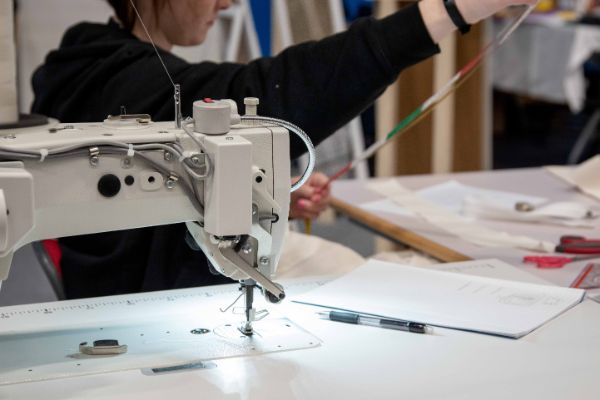Dressmaker
A dressmaker makes clothes, accessories or other textile products by hand or using a sewing machine. A dressmaker may work in industry, in sewing shops or as entrepreneurs. The profession requires manual skills, accuracy and customer service skills.
Entrepreneur, textile industry production plants, sewing shops, companies selling clothes and textiles, theatre costume shops and film and television productions.
As a dressmaker, you must master the different stages of the manufacturing of textile products. You must be familiar with the most common materials and raw materials and their properties. You must be able to read and observe work instructions, detail drawings and work plans, and use the most common machines and equipment. You are also required to have mathematical skills, as you should use materials appropriately and economically.
Sewing requires precision, care, good concentration and dexterity. You need to have good visual skills. Creativity and problem-solving skills are beneficial, as repairing and modifying textile products often requires special skills and imagination to repair mistakes and damage in a discreet and stylish manner.
You need good customer service skills so that you can communicate with customers and understand their wishes and needs. You should have self-initiative skills and an ability to work independently.
Language skills and information technology skills are beneficial in the profession. Working as an entrepreneur requires knowledge of the basics of entrepreneurship.
In vocational institutions in upper secondary education and training, you can complete a Vocational Qualification in Textiles and Fashion Industry. The qualification title may be dressmaker, custom sewer, milliner, soft furnishing sewer, textile sewer, design textile sewer or tailor. The vocational qualification can also be completed through an apprenticeship. When you have accumulated competence, you can complete a Further Qualification in Textiles and Fashion Industry and specialist vocational qualification.
Median salary
2243 €/mo
The data is based on the median income, meaning the amount of salary which is the middle of the salary amounts arranged in order of magnitude.
Source: Statistics Finland's structural statistics on wages and salaries

